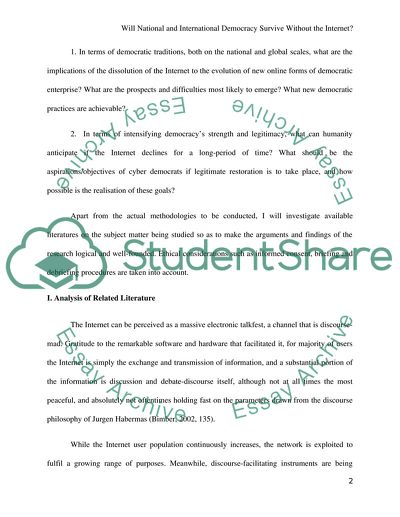Cite this document
(Without the Internet, Will National and Global Democracy Survive Essay, n.d.)
Without the Internet, Will National and Global Democracy Survive Essay. Retrieved from https://studentshare.org/politics/1719925-without-the-internet-will-national-and-global-democracy-survive
Without the Internet, Will National and Global Democracy Survive Essay. Retrieved from https://studentshare.org/politics/1719925-without-the-internet-will-national-and-global-democracy-survive
(Without the Internet, Will National and Global Democracy Survive Essay)
Without the Internet, Will National and Global Democracy Survive Essay. https://studentshare.org/politics/1719925-without-the-internet-will-national-and-global-democracy-survive.
Without the Internet, Will National and Global Democracy Survive Essay. https://studentshare.org/politics/1719925-without-the-internet-will-national-and-global-democracy-survive.
“Without the Internet, Will National and Global Democracy Survive Essay”, n.d. https://studentshare.org/politics/1719925-without-the-internet-will-national-and-global-democracy-survive.


